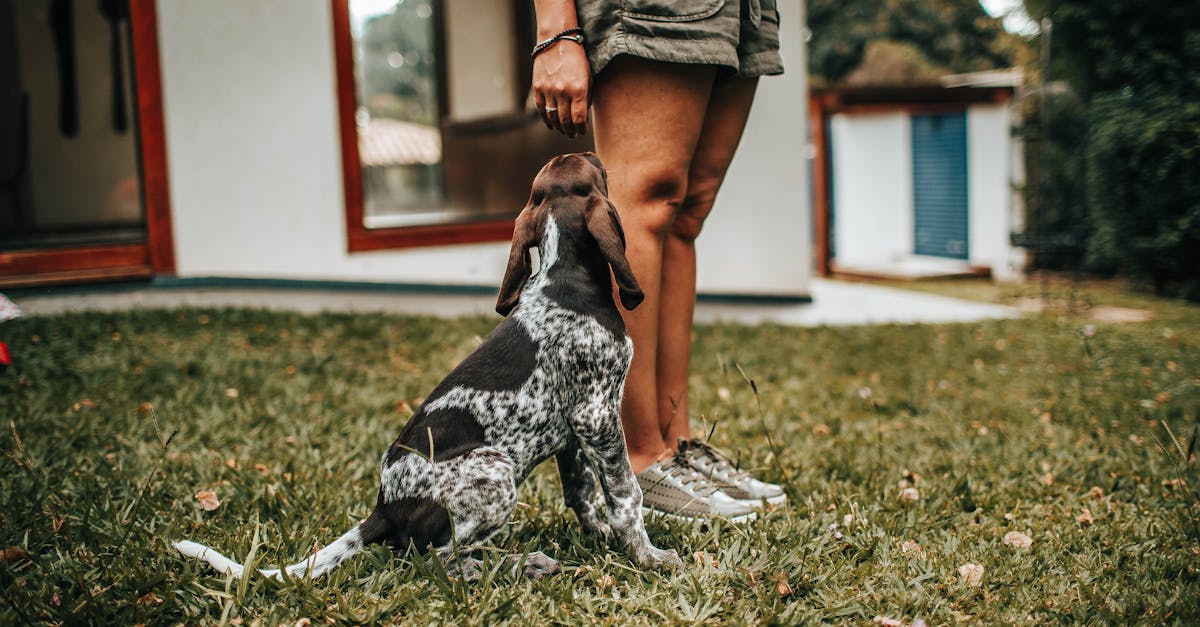Bringing home a new puppy is an exciting and joyful experience, but it can also feel overwhelming, especially when it comes to training. Puppies grow and learn quickly, and having a clear training schedule by age can help you set them up for success. Whether you're teaching basic commands or working on potty training, this guide will walk you through what to focus on during each stage of your puppy's development.
🩺 Vet Recommendations
Training isn't just about teaching commands—it’s about building a foundation of trust, communication, and good habits. Puppies thrive on consistency and positive reinforcement, so having a structured schedule is key. Here's why it matters:
- Consistency builds confidence: Puppies feel more secure when they know what to expect.
- Good habits prevent bad behaviors: Starting early helps avoid issues like jumping or chewing.
- Socialization is critical: Early exposure to people, pets, and environments helps puppies grow into well-adjusted adults.
As a veterinarian, I recommend starting training as soon as you bring your puppy home. Each stage of their life comes with unique learning opportunities, so let’s break it down by age.
📋 Care Tips: Puppy Training by Age
8–10 Weeks: The Basics
At this age, your puppy is like a sponge, ready to soak up new experiences. Focus on the essentials:
- Potty training: Take your puppy outside every 1–2 hours and after meals, naps, or playtime.
- Name recognition: Use their name often in a happy tone to help them learn it.
- Socialization: Introduce them to new people, gentle dogs, and different environments to prevent fearfulness later.
- Basic commands: Start with simple cues like “sit” and “come” using treats and praise.
Keep sessions short—5–10 minutes at a time—since puppies at this age have limited attention spans.
10–16 Weeks: Building Skills
As your puppy grows, they’ll become more curious and independent. This is a great time to build on the basics:
- Leash training: Introduce your puppy to a collar and leash, and practice walking without pulling.
- Crate training: Create a positive association with their crate by feeding meals inside and rewarding calm behavior.
- “Leave it” and “drop it” commands: Teach them to let go of objects to prevent chewing or swallowing hazards.
- Socialization: Continue exposing your puppy to new situations, including car rides and household noises.
According to the ASPCA, proper socialization during this period can help prevent behavioral issues later in life (source).
4–6 Months: Reinforcing Good Behavior
By now, your puppy has more energy and confidence, but they may also test boundaries. Consistency is key:
- Reinforce commands: Practice “sit,” “stay,” “come,” and “leave it” daily to solidify their skills.
- Address jumping: Teach your puppy to greet people calmly by ignoring jumping and rewarding sitting.
- Impulse control: Play games like “wait” with treats to teach patience.
- Polite leash walking: Reward them for staying by your side instead of pulling.
At this stage, puppies can handle slightly longer training sessions (10–15 minutes), but always end on a positive note to keep them motivated.
6–12 Months: Polishing and Advanced Training
Your puppy is transitioning into adolescence, which can come with challenges like stubbornness or testing limits. Stay patient and consistent:
- Advanced commands: Teach “place,” “heel,” or tricks like “roll over” to keep their mind engaged.
- Recall training: Practice “come” in various environments with distractions to ensure reliability.
- Socialization: Continue exposing your puppy to new experiences to maintain confidence.
- Prevent bad habits: Redirect chewing, digging, or barking with appropriate outlets like toys or exercise.
This is also a good time to consider enrolling in an obedience class for additional guidance and socialization opportunities.
✅ Do’s and Don’ts
- Do use positive reinforcement like treats, praise, and toys.
- Do keep training sessions short and fun to match your puppy’s attention span.
- Do stay consistent with commands and routines.
- Don’t punish your puppy for accidents or mistakes—it can create fear and confusion.
- Don’t expect perfection overnight; training takes time and patience.
💡 Expert Advice
Puppy training is a journey, and every dog learns at their own pace. Celebrate small wins, and don’t hesitate to ask for help if you’re feeling stuck. Remember, the goal isn’t just to teach commands—it’s to strengthen your bond with your puppy and help them grow into a happy, well-mannered companion.
If you’re struggling with specific behaviors or need tailored advice, a professional trainer or online vet consultation can provide additional support. The earlier you address challenges, the easier they are to resolve.
FAQs
Q: When should I start training my puppy?
A: You can start training as early as 8 weeks old. Focus on basic commands, potty training, and socialization during this time.
Q: How long should training sessions be?
A: For young puppies, keep sessions short—5–10 minutes. As they grow, you can gradually increase the duration to 10–15 minutes.
Q: What if my puppy isn’t learning as quickly as I’d hoped?
A: Every puppy learns at their own pace. Stay patient, consistent, and positive. If you’re concerned, consider consulting a vet or trainer for guidance.
Book a $49 online vet consultation at https://www.dialavet.com for fast, expert advice.























